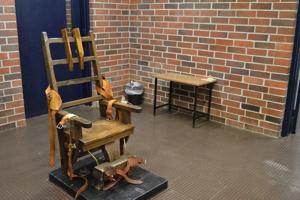Attorneys lobby for delay in South Carolina’s first execution in 11 years

(The Center Square) – South Carolina death row inmates previously could choose between lethal injection or the electric chair as their way of execution, and the state could not force the condemned to die by electrocution if the deadly chemical cocktail was unavailable.
Because South Carolina is among states that have been unable to secure the necessary chemicals for lethal injections, it has not executed a death row inmate since 2011. There are 37 prisoners, all men, waiting to be executed.
During the recently concluded legislative session, South Carolina lawmakers adopted Senate Bill 200, sponsored by Sen. Greg Hembree, R-Little River. It removes that provision and allows the state to proceed with executions of death row inmates who selected lethal injection even if the shots cannot be administered.
SB 200, which also restores firing squads as mode of execution inmates can select, was signed into law May 11 by Gov. Henry McMaster. Shortly after, the state’s Supreme Court issued updated execution dates for two death row inmates.
Brad Sigmon, 63, on death row since 2002, is scheduled to die June 18, and Freddie Owens, 43, issued the death penalty in 1999, is set to be executed June 25.
Because the state doesn’t have the chemicals necessary for lethal injection and does not have a firing squad for executions, the two are set to be electrocuted to death in South Carolina’s 109-year-old electric chair.
Lawyers representing Sigmon and Owens have filed a lawsuit challenging SB 200, arguing the new law is unconstitutional because their clients were sentenced under an older statute that made lethal injection the default execution method.
Arguing before at-large South Carolina Circuit Court Judge Jocelyn Newman on Monday in her Columbia courtroom, the attorneys said their clients were offered a choice and now that choice is gone because the only method of execution available is the electric chair.
The attorneys want Newman to block the executions until their lawsuit challenging SB 200 works its way through the courts.
South Carolina’s new law is the first in the nation’s history to restore previously used methods of execution, such as firing squads, said attorney Hannah Freedman of Justice 360, which is representing Owens and Sigmon.
“We’re here today to address a crisis,” Freedman said. “They’re attempting to make South Carolina the first American jurisdiction to revert to a more brutal, less humane, more onerous method of execution.”
The inmates’ attorneys also insist South Carolina is not trying hard to acquire lethal injection drugs.
McMaster and Department of Corrections’ lawyers countered that death row inmates do not have a right to choose how the state will execute them. South Carolina has the right, and the responsibility, to carry out the executions with whatever methods are available, they said.
State attorneys said the electric chair and firing squad are no more or less humane than lethal injection, noting the “cruel irony” of emerging research that indicates the lethal injection cocktail contain a paralyzing agent that conceals “torturous pain.”
“South Carolina is not going back to a method of execution that is intended to cause pain,” DOC attorney Daniel Plyler told Newman.
Newman said the new law’s firing squad component of is a “red herring.” The true question, she said, is how lawmakers have changed the “default method” of execution from lethal injection back to electric chair or even firing squads.
Her ruling will be issued “within the next few days” on the request to stay the executions while the lawsuit challenging to constitutionality of SB 200 is heard in court.
Disclaimer: This content is distributed by The Center Square
